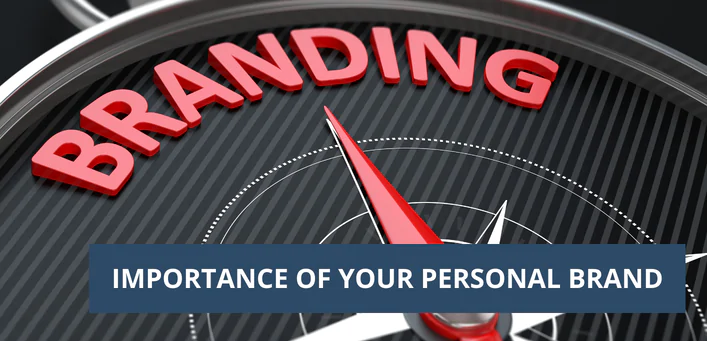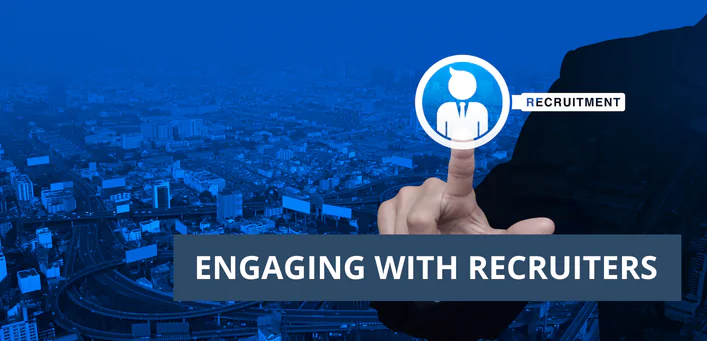Social media is changing the world like never before. The different media create a personal profile and therefore also have an impact on the application process. This article explains why your personal brand can be positively or negatively affected by your social media profiles and how you can proactively contact recruiters to support your application process.
Using Social Media in Your Graduate Job Search


The concept of a personal brand is not new. Before social media, it was always recommended to dress smart for interviews, to be polite and courteous in professional environments and make good first impressions. It is the same today, but social media brings a new dimension. Anything that is public contributes to your personal brand. The content that you put on social media shows your interests, your opinions, your hobbies and more.
Social media means that your historic activity is also considered. A You Gov survey in 2018 found that 20% of employers had turned down candidates because of their social media activity. That means Twitter, Instagram, Facebook, YouTube etc. can all play a factor in the hiring decision. Anything that is public contributes to your personal brand.
It also means that your first impression is made before you begin an interview, and the interviewer may have preconceptions before you enter the room. So, anything that can have a negative impact on your personal brand should be made private or deleted whilst you are applying for graduate jobs.
Your personal brand can also have a massively positive impact on your job hunting experience. It can generate your opportunities and demonstrate your suitability to a role. LinkedIn and Twitter are the two best platforms for this because they allow you to engage with people outside your network most easily. Industry experts and leaders are all using Twitter to voice their opinions and analysis. Many aspiring graduates are engaging with these industry leaders to discuss the relevant topics and ask insightful questions. LinkedIn is designed for you to engage with people outside your own network and is the most common place for recruiters and hiring companies to be searching for talent.


Name-dropping current employees in your cover letters is an easy way to show CV screeners that you have done your research on the company and have a strong desire to work there. You have taken time to find someone who works there and have the initiative to reach out to them in order to understand what working there is like and what makes it different to competitors.
Your own network is a good place to start, especially your family and friends. If you are applying from university, then it is likely that someone from your university a few years older is currently working at the company, and you are only one-step removed from them. A friend or friend of a friend will know them enough to send them a message asking if they are happy to talk to you for 15 minutes about the job role and the company.
Warm introductions like this are more successful than cold ones, but it is not always possible to find someone to introduce you to a current employee. In this scenario, all you can do is ask. Reaching out on LinkedIn is a perfectly acceptable way to approach someone for a professional conversation and if they do not respond then you have lost nothing, you cannot offend someone by being interested in their line of work.
A reasonable introduction message might be:
“Hi [insert first name],
I am a final year student at [insert university] studying [insert course] and am I looking to pursue a career in [insert industry]. I am interested in applying to [insert company] and wondered if you would be willing to have a 15-minute chat to discuss what it is like to work there?
Best,
[your name]
Your personal brand and historic social media activity will increase the response rate of cold introductions. Before agreeing to speak, the person will want to make sure you are not going to waste their time and that you meet the basic requirements of a graduate applicant (typically where you are currently studying). They will also scan your historic activity to make a high-level judgement on whether you are the type of person that they want to help. If your historic social media activity has any particular red flags such as racism, extreme political views etc. then they won’t be compelled to help you apply to their firm.


Recruiters now use LinkedIn as their primary source of candidates, and so you may get approached by recruiters, but you can also proactively reach out to recruiters yourself. The benefit of using a recruiter is that they will work to find you a job on your behalf. They earn their money from hiring companies by finding good candidates. They will have a list of opportunities they know of and will put you forward for anything that is suitable.
The downside to engaging with recruiters is that they can be incredibly annoying and not have your best interests at heart. They make money as soon as you are in a job, not necessarily the job that is best for you. Bad recruiters will persuade you to take offers you do not want and put yourself forward for jobs that you are not suited. When working with a recruiter, you need to be clear what jobs you are interested in and why.
To approach recruiters on LinkedIn, there are 5 steps to follow:
3.1 Understand What Recruiters Do
Recruiters are matchmakers; they match people to job openings. That means they need a supply of job vacancies and a pool of candidates to fill the vacancy. It is their job to make the match and manage the introduction and meeting of the two – they are paid if the match is successful, i.e. their candidate is hired for the job.
3.2 Figure Out What Kind of Recruiter You Are Contacting
Recruiters can work for an agency or in-house. Agency recruiters work with multiple companies at once and will put you forward for more than one job listing at a time. In-house recruiters work for only one company and will have more influence on the hiring process, but only for their company. It is important to know which one you are dealing with.
3.3 Know What Your Value Proposition Is
Recruiters deal with candidates all the time and are time poor. You need to be clear with the specifics of your job search: what roles you are looking for, what location, what industry and when you can start. The more specific you can be with your search, the quicker they are going to be able to match you to an opportunity.
3.4 Send the Message
Similar to reaching out for a cold introduction, just send the message. The recruiter will either respond or they will not, but it is usually in their interest to reply. They are always on the lookout for new candidates. They will likely ask you when you are free for a call to catch up and discuss the roles you are interested in and how they can help.
3.5 Stay Connected
An initial conversation with a recruiter isn’t the end of your work. They will be working with multiple candidates, and you need to ensure you are at the front of their mind and so regularly updating them with your job search is a good idea (the more informal the better), this will give them motivation to keep prioritizing you over other candidates.
Continue to Learn



